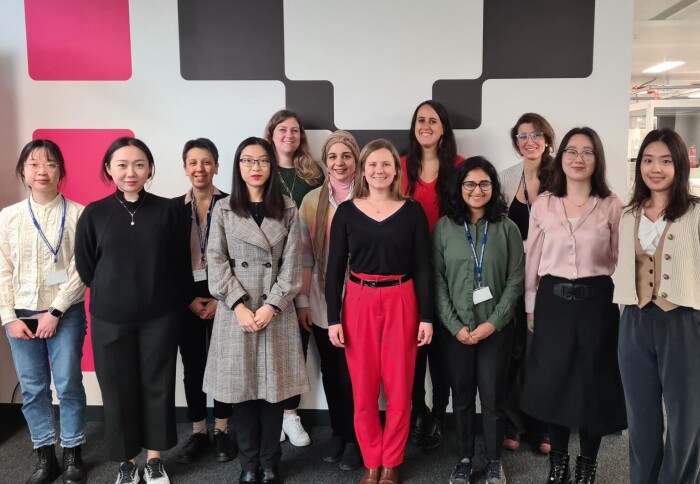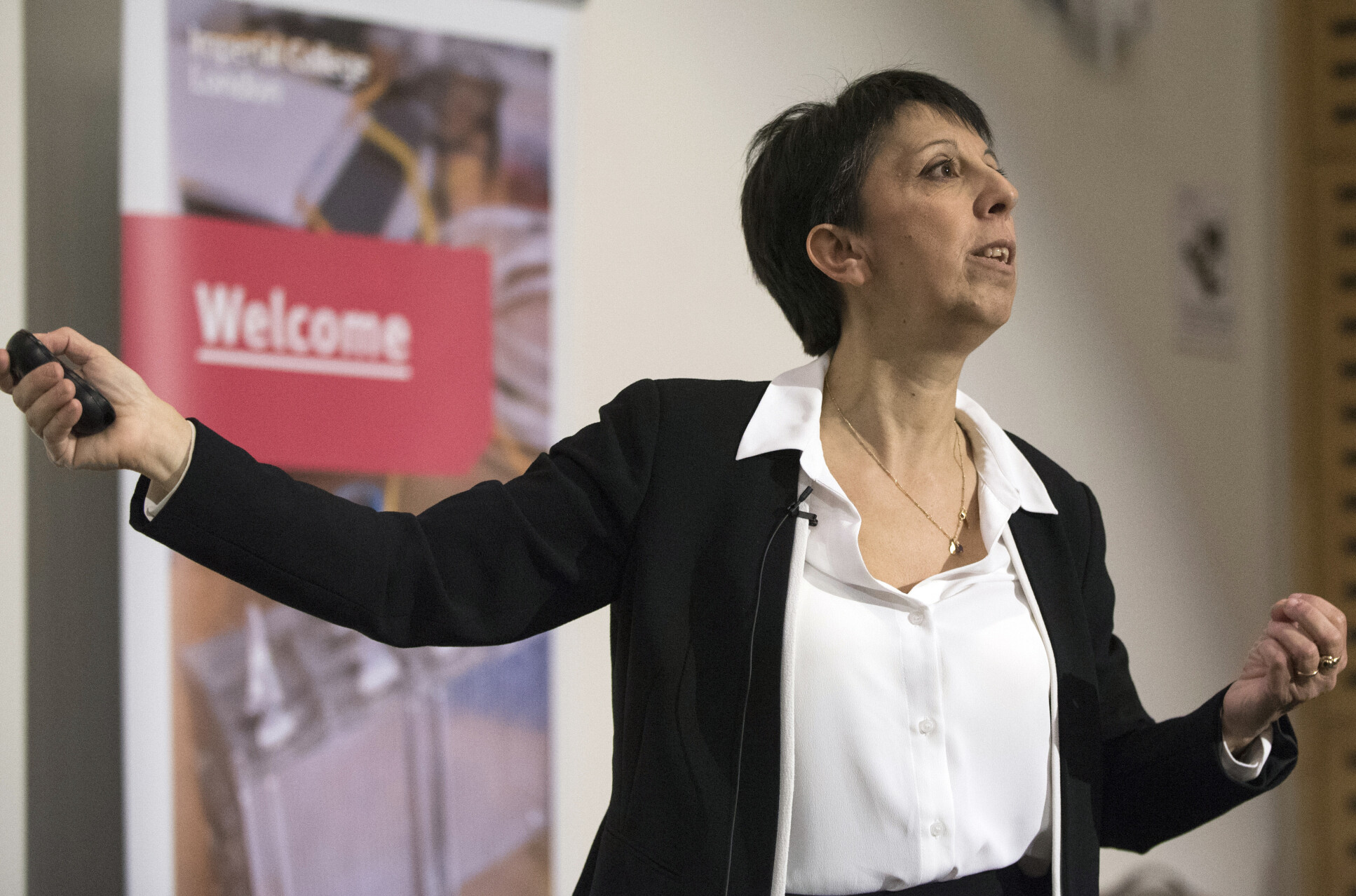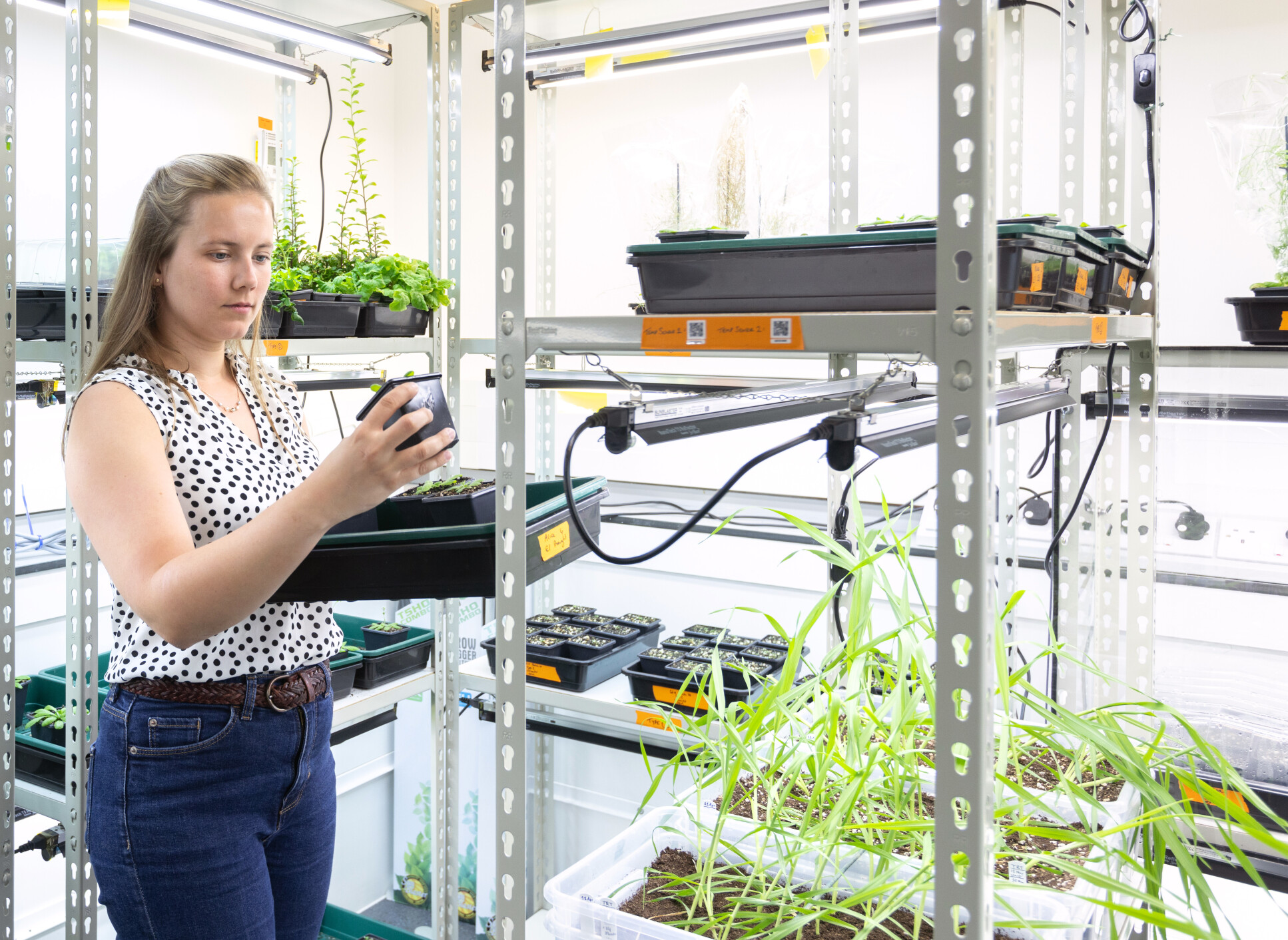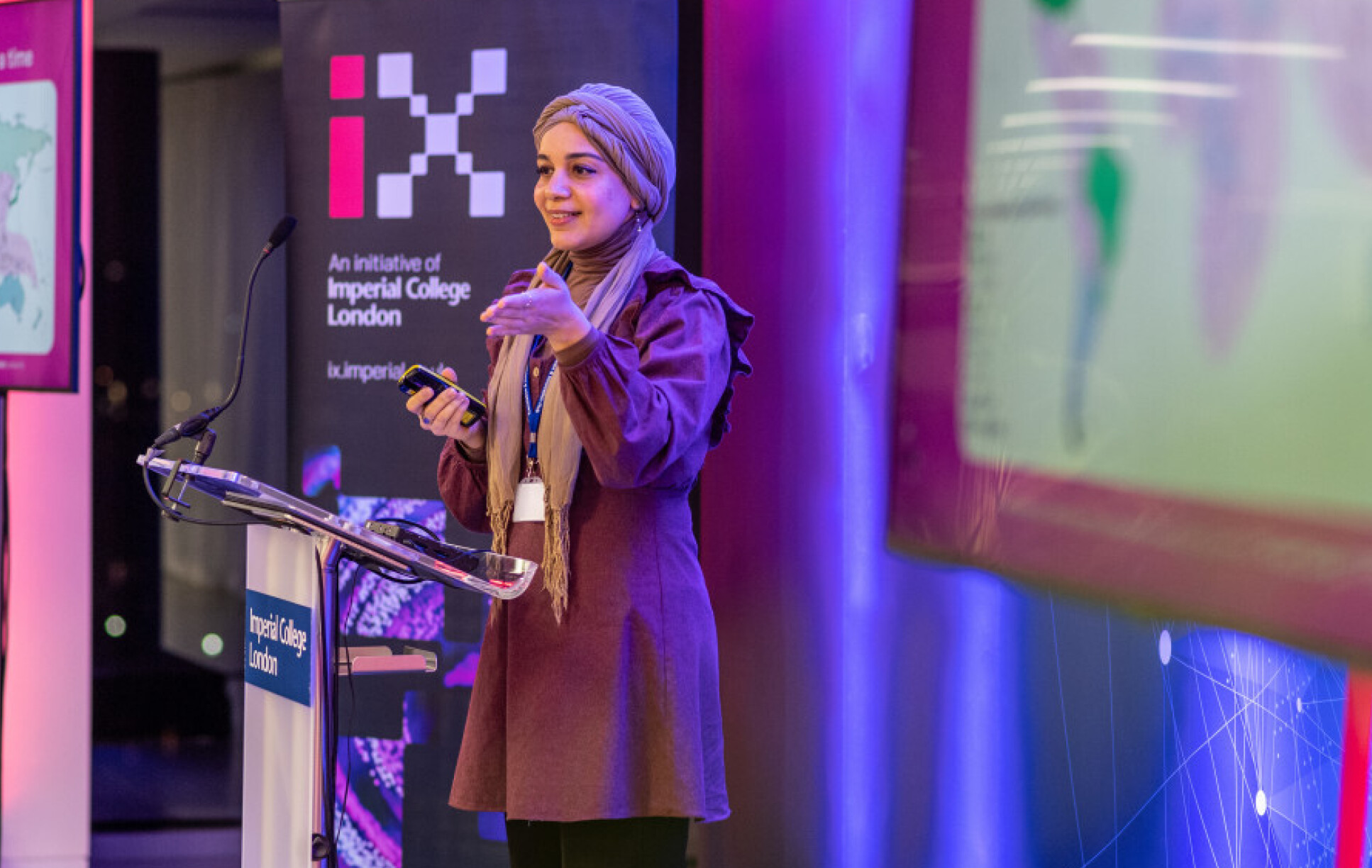Breaking the bias: I-X celebrates women in AI

To mark International Women's Day and Women at Imperial Week, we spoke to twelve of our female I-X experts about the impact of AI on gender equality.
As AI systems become ubiquitous in everyday life, how can we ensure pre-existing inequalities are not exacerbated? With only 22 per cent of women working in AI and data professions in the UK, we asked women across our I-X community to reflect on how we could attract more women to the field of AI, the potential it may have in advancing gender equality and ways to prevent bias in these technologies.
Dr Alessandra Russo

Professor in Applied Computational Logic
"Recent advances in AI, if deployed in a fair and responsible manner, offer great opportunities for creating a society with more equal opportunities. Tasks that have been stereotypically associated to women – e.g. secretarial, administrative and clerical -- could potentially be performed in an automated fashion by means of AI. This could consequently create opportunities for women to gain new skills, focus on more meaningful roles, and aspire to more strategic career progression where their planning and decision-making capabilities could be put to a more impactful use.
A diverse (AI) task force will also help maintaining equality and the unbiased use of AI systems, as it would be more sensitive to these social matters. Finally, the numerous opportunities for multidisciplinary applications of AI in science, as well as in engineering, can offer new ways in which women could engage with the industrial sectors, where their scientific knowledge and skills could be put into practice in different ways (i.e. not just limited to laboratory work)."

Dr Gema Vera González
 Eric and Wendy Schmidt AI in Science Postdoctoral Fellow
Eric and Wendy Schmidt AI in Science Postdoctoral Fellow
"To attract more women to roles in AI we want to start with education: making tech, AI and leadership cool for girls and teenagers with workshops and more importantly, role models, both in real life and media. Later on in life, having scholarships/fellowships for women in STEM at different career levels can make huge difference.
"To attract more women to roles in AI we want to start with education: making tech, AI and leadership cool for girls and teenagers."
It is also very important to have mentors and networks who back you up and support you. Having EDI-balanced workspaces is crucial: blind processes for hiring/awarding of prizes/fellowships should be used when possible, to tackle subconscious biases. When this is not possible, there should be a focus on having EDI-inclusive selection panels."
Dr Gege Wen
 Lecturer in Artificial Intelligence and Machine Learning
Lecturer in Artificial Intelligence and Machine Learning
"To attract more women into AI, we must foster inclusive educational programs and actively dismantle stereotypes. I believe in the value of creating visible female role models in AI and ensuring equal opportunities for advancement.
The start of my own career was strongly motivated by female AI scientists such as Dr. Fei-Fei Li from Stanford and Dr. Anima Anandkumar from Caltech. Witnessing female leadership role models in the AI space gave me confidence in pursuing my own career, and I hope to serve the same role for the next generation of AI scientists."
Dr Dian Zhang
 Lecturer in Artificial Intelligence & Machine Learning
Lecturer in Artificial Intelligence & Machine Learning
"It will be hugely beneficial to provide and promote funding opportunities targeting women to enhance female participation in AI. Success stories of female academics can be powerful inspirations for future generations.
"It will be hugely beneficial to provide and promote funding opportunities targeting women to enhance female participation in AI."
This will be supported through measures across the career spectrum - the development and implementation of gender equity guidelines in the recruitment process, an inclusive environment to support women's participation in skill-enhancing workshops and academic networking events, and leadership development programmes to train future female leaders in AI."
Dr Alice Malivert
 Eric and Wendy Schmidt AI in Science Postdoctoral Fellow
Eric and Wendy Schmidt AI in Science Postdoctoral Fellow
"I find it interesting how the proportion of women in computer science is influenced by cultural dynamics. Coding, once considered tedious and predominantly a woman's task, has undergone a shift in the West, making it a more prized sector, which leads to a male-dominated field. In cultures with different perceptions of the relationship between gender and computer science, such as in Malaysia, the majority in the computer industry are women. Empowering women in AI on a global scale thus demands a cultural shift. It starts with robust mentorship and outreach programs, coupled with incentives like quotas and a supportive workplace culture. The African Institute for Mathematical Sciences (AIMS) is a compelling example, employing these tools to reach balanced representation."

Dr Sophia Yaliraki
 I-X Co-Director and Professor of Theoretical Chemistry
I-X Co-Director and Professor of Theoretical Chemistry
"It is wonderful to be part of a community of such trailbazing women in AI here at I-X. It is more important than ever that women are involved in this area, from asking the questions, to developing the algorithms to ensuring the right data are collected, if AI is to fulfil its promise to deliver a better world for us all."
Dr Nicole Salomons
 Lecturer in Artificial Intelligence & Machine Learning
Lecturer in Artificial Intelligence & Machine Learning
"I believe there are three key things we really need to prioritise if we want to prevent AI in reinforcing preexisting gender inequalities. First, we need to ensure that the data we collect is representative of the population (and includes a diverse set of men, women, and non-binary people).
"We need to ensure that the data we collect is representative of the population and includes a diverse set of men, women, and non-binary people."
Second, by having more female and non-binary individuals lead research and startups in AI, we will have a greater chance of catching these biases early on and find new ways to prevent them. Third, we should include all stakeholders throughout development to make sure the outcomes will be helpful for all."
Dr Zhenzhu Li
 Eric and Wendy Schmidt AI in Science Postdoctoral Fellow
Eric and Wendy Schmidt AI in Science Postdoctoral Fellow
"As a woman working on AI in Science, I find myself positioned at the intersection of "women in tech" and "women in academia". From my experience, the potential of AI in advancing gender equality for women lies in its ability to streamline the learning process, effectively removing barriers and hurdles that may hinder women's educational pursuits. For instance, benefitting from OpenAI's GPT store, I established my own GPT assistant tailored for professional career coaching, it can aid me in various aspects such as self-reflection, assessing my work performance, honing my AI skills, and preparing for interviews. It is professional, personalised, always accessible, and with mitigated bias. Therefore, I believe that AI does have the power to promote equality for women in the workforce, empowering us to overcome barriers and achieve our full potential in our chosen careers."
Dr Islem Rekik
 Senior Lecturer in Computing
Senior Lecturer in Computing
"To attract more women to roles in AI we need to look at organising annual events and workshops on how to accelerate career development and stand out as women in this sector. Such workshops can also tackle work-life balance and expose the key challenges successful female leaders face in their career trajectories. Peer-to-peer knowledge and expertise transfer can be very empowering through networking activities.
"Nurturing a space where women can grow authentically can offer a whole new perspective to the AI world."
One can also support women in AI by organising intensive training programs and educational events on how to boost your talent in AI, how to lead a research team or a start-up in AI, empower under-represented women from different backgrounds and how to build international synergies and collaborations to draw in funding.
In my opinion, women should lead with integrity, using their wisdom, intelligence, compassion and communication. Many women struggle to find their voices in a tech world (especially AI) as they find themselves mimicking male colleagues/leaders, which may not be fully aligned with who they are. This may limit their capacity as they copy and do not allow themselves to fully unravel their true potential with full integrity. Nurturing a space where women can grow authentically can offer a whole new perspective to the AI world. We need to teach women to lead, in their own creative and compassionate way."

Maria Stoica
 STAI CDT PhD student of I-X Faculty Member Alessio Lomuscio
STAI CDT PhD student of I-X Faculty Member Alessio Lomuscio
"While bias in AI is a complex problem, there are many ways in which we can prevent inequalities and create equitable systems. For example, in my master’s dissertation, I explored how we can measure biases in financial machine learning to see if the datasets used are imbalanced or if the outcomes are prejudicial against characteristics such as race and gender. These measures are essential for understanding how these automated systems can negatively impact minority groups by reinforcing biases existing in our society. There is a growing interest in AI research to mitigate such biases, and the more we are aware of these issues and work to solve these problems, the more AI systems can help break preexisting gender inequalities"
Dr Claire Heaney

Eric and Wendy Schmidt AI in Science Postdoctoral Fellow
"As we strive to build a more equitable and inclusive society, the role AI will play in our lives and workplaces must be taken into consideration. AI touches on all aspects of our lives, from suggesting items we might like to purchase to managing our heating, ventilation and energy systems, and from assisting with diagnoses to shortlisting candidates. Although AI has the potential to remove bias and discrimination from recruitment and assessment processes, if the data used to train AI models is itself biased or unrepresentative, this deficiency will be passed onto the AI model. By attracting more women to roles in AI, we can have a broader discussion representative of more points-of-view with greater scrutiny of our methods and data, leading to more balanced outcomes."
Dr Chen Qin
 Lecturer in Computer Vision and Machine Learning
Lecturer in Computer Vision and Machine Learning
"To attract more women to jobs and roles in AI, it is important that we support women in STEM education. Currently we have seen more girls are taking STEM-related subjects, which are good signs, but the proportion is still low compared to boys, and this would require our constant efforts in encouraging this.
"Female mentorship programmes will be crucial to support women in taking up leadership positions."
As academics, we shall outreach more to school girls, exposing them with the various opportunities in AI and encouraging them to participate in AI activities. In addition, I think that mentorship, particularly female mentorship programmes, will be crucial to support women in taking up leadership positions. Such programme will be of great help to early- and mid-career women in developing career goals and taking advantage of all possible opportunities, and will also enable them to feel supported when tackling challenges that are particularly faced by women."
Article text (excluding photos or graphics) © Imperial College London.
Photos and graphics subject to third party copyright used with permission or © Imperial College London.
Reporter
Elinor Pegler
Faculty of Engineering